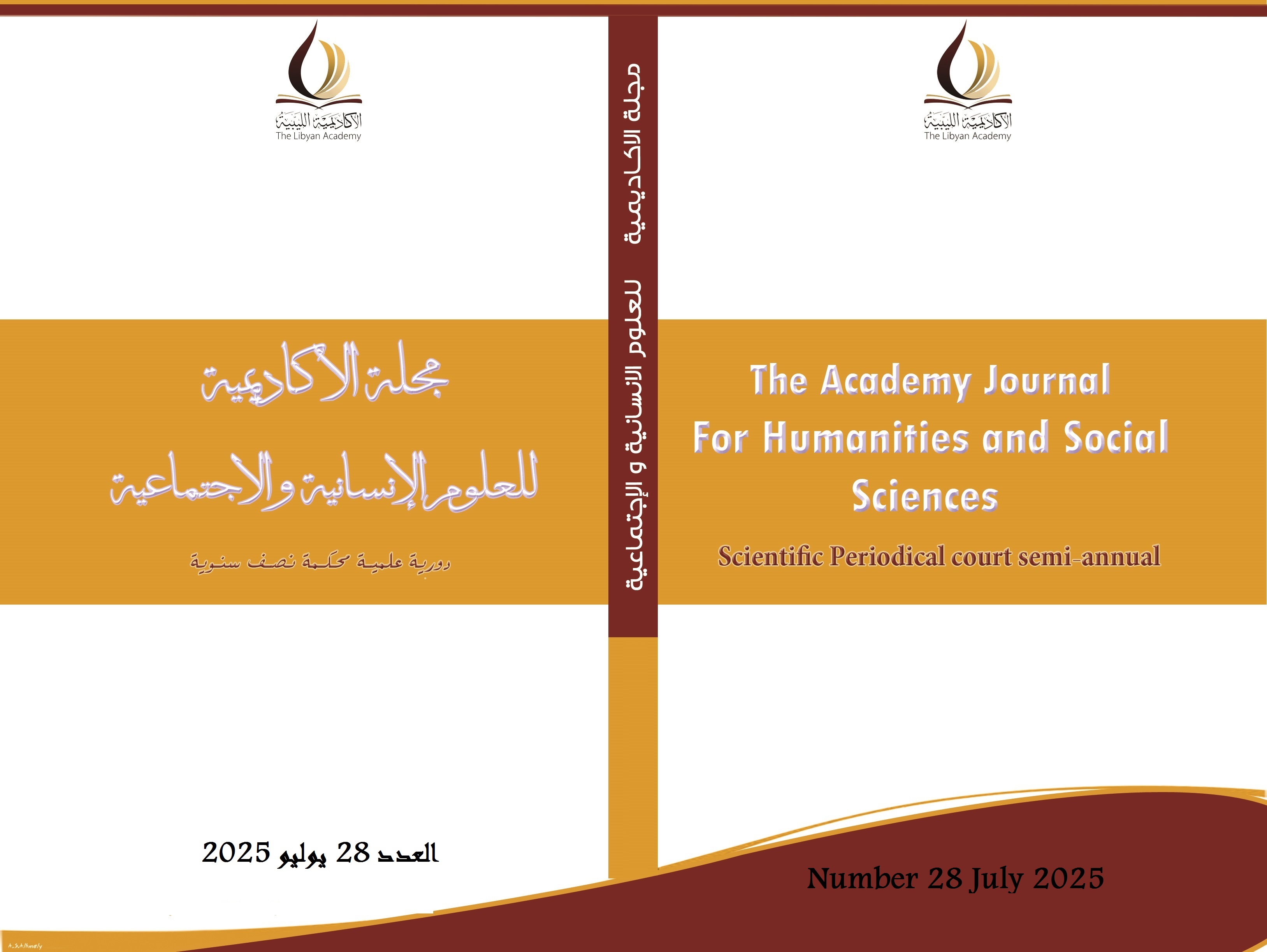The most important problems facing faculty members at the Faculty of Education, University of Tripoli
DOI:
https://doi.org/10.64095/ajhss.v16i28.110Keywords:
University education, faculty members, scientific research, educational and professional capabilitiesAbstract
University education has witnessed significant development and change over the past few years. This development has had diverse and varied characteristics, perhaps the most significant of which is the significant increase in the number of students enrolled in universities, the establishment of new universities, the increase in the number of colleges, and the increased interest in scientific research and postgraduate studies. The university plays its traditional role in graduating the necessary human resources, including the specialized cadres upon whom society relies to achieve its goals, carry forward its aspirations, and systematically increase its knowledge base.
The state has realized that the progress it seeks cannot be achieved simply by importing knowledge and scholars, but rather by building an educational edifice that enables it to prepare and qualify generations capable of serving the goals of Libyan society on sound foundations. For university education to fulfill this role, care must be taken to ensure that its inputs are of a distinctive quality. These inputs are represented in three main aspects: the distinguished university professor, the responsible student, and advanced university curricula. Faculty members are considered a fundamental pillar of university education and the essential element in achieving the university's goals. They are entrusted with teaching human resources and conducting scientific research that contributes to the advancement and development of knowledge for the benefit of society. Since faculty members are the cornerstone and essential element in achieving the university's goals, it has become imperative to pay attention to their selection, preparation, and development of their academic, educational, and professional capabilities, resolve the problems they face during their tenure, and establish the foundations, curricula, and programs for this purpose. For university faculty members to fully fulfill their role, the surrounding conditions must be conducive to enabling them to perform their duties. Hence, the importance of identifying the problems facing university faculty members emerges so that we can develop new strategies to address these problems and find appropriate solutions, leading to increased effectiveness and productivity
References
- عبد الله فضل، نظم التعليم العالي والجامعي، طرابلس، دار الجماهيريه، سنـة 1996م.
- الهلال الشربيني، بعض المشكلات التي تواجه المعلمين في أداء مهمتهم، مجلة دراسات تربوية، القاهرة، مج1، ع1، 1999.
- عدنان بدر إبراهيم، المشكلات التي تواجه عضو هيئة تدريس المبتدئ في الجامعات الحكومية، رسالة ماجستير غير منشورة، عمان، الجامعة الأردنية،1994.
- سعيد أحمد حسن، المكتبة الجامعية، نشأتها وتطورها وأهدافها، بيروت، دار الجيل، 1992
- أحمد زكي بدوي، معجم مصطلحات التربية والتعليم، القاهرة، دار الفكر العربي، 1990.
- عبد الله ابوبطانه، تمويل التعليم العالي العربي، البحث عن بدائل جديدة، قرارات حول التعليم العالي، عدد3، 1999.
- كوري فؤاد، معوقات البحث العلمي من وجهة نظر أعضاء هيئة التدريس في كليات الإنسانية بجامعة القدس، مجلة كلية التربية الأساسية للعلوم التربوية والإنسانية، جامعة بابل، 2015.
- العامري عبد العزيز، المشكلات التي تواجه أعضاء هيئة التدريس في كليات التربية بالجامعات اليمنية، مجلة الدراسات الاجتماعية، العدد 59، 2014.
- الحويطي عواد، المشكلات الأكاديمية التي تواجه أعضاء هيئة التدريس في جامعة تبوك، المجلة الدولية التربوية، 2013.
Downloads
Published
How to Cite
Issue
Section
License

This work is licensed under a Creative Commons Attribution-ShareAlike 4.0 International License.





